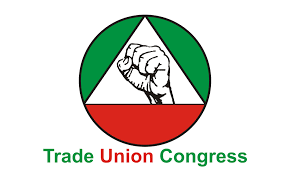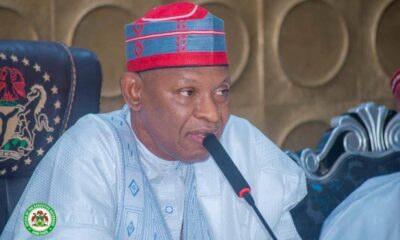The Trade Union Congress of Nigeria (TUC) has rejected a circular issued by the Federal Ministry of Health and Social Welfare directing the implementation of a “No Work, No Pay” policy and the stoppage of salaries of members of the Joint Health Sector Unions through the Integrated Payroll and Personnel Information System from January 2026.
The circular, signed by the Director of Hospital Services in the ministry, Dr Abisola Adegoke, ordered the enforcement of the policy in response to the ongoing JOHESU strike, which began on November 15, 2025.
In a statement issued on Wednesday and jointly signed by its President, Festus Osifo, and Secretary General, N. A. Toro, the TUC described the directive as unacceptable, provocative and a violation of established industrial relations principles.
The congress said the ministry’s action undermined ongoing negotiations between the Federal Government and health sector unions, accusing it of resorting to intimidation instead of dialogue.
“The Trade Union Congress of Nigeria unequivocally, vehemently and totally rejects the circular issued by the Federal Ministry of Health and Social Welfare on the so-called implementation of ‘No Work, No Pay’ and the stoppage of salaries of JOHESU members through IPPIS, effective January 2026,” the statement read.
According to the TUC, the decision amounted to a gross abuse of power and a deliberate attempt to sabotage negotiations.
“Congress states in the clearest terms that this action is a gross abuse of power, a deliberate sabotage of ongoing negotiations, and a flagrant violation of established industrial relations principles. It represents a return to command-and-control labour administration, which has no place in a democratic society,” the union said.
The congress warned that the stoppage of salaries would worsen the hardship already faced by health workers amid rising inflation, fuel price increases and broader economic challenges.
“You cannot negotiate with workers on one hand and unleash punishment with the other. This circular is not policy; it is intimidation, and Congress will not accept it,” the statement added.
The TUC further condemned what it described as the “weaponisation” of IPPIS to punish workers, vowing to resist any attempt to force health workers back to work through salary stoppages.
“The stoppage of salaries of JOHESU members—workers who save lives daily—is wicked, insensitive, provocative and profoundly unpatriotic, especially at a time when Nigerian workers are being crushed by inflation and harsh economic policies,” it said.
The congress demanded the immediate and unconditional withdrawal of the circular, restoration of all affected salaries and a return to negotiations within seven days.
It warned that failure to reverse the decision within the stipulated period would compel the TUC to mobilise workers across sectors for decisive collective action.
“The Federal Ministry of Health and Social Welfare must immediately withdraw this circular, restore all affected salaries and return to the negotiation table within seven days. Failure to do so will force Congress to mobilise Nigerian workers nationwide,” the statement said.
The TUC also placed its affiliates, state councils and the Federal Capital Territory council on alert, directing them to remain on standby for further instructions.
It warned that any industrial unrest arising from the situation would rest squarely on the leadership of the health ministry, accusing it of choosing confrontation over dialogue.
punch.ng
FOLLOW US ON:































